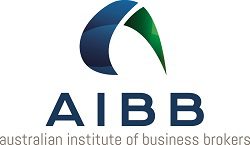Buy a Business FAQ
Answers to the most frequently asked questions when purchasing a businessBuy a business FAQ
Q. Why should I use a Business Broker to find a new business?
A business broker usually checks the bona fides of a business and clearly outlines the key features of a business. If you deal with a seller direct, you don’t have the advantage of having a third-party who can facilitate the negotiation and liaise between the two parties.
Q. How long will it take to find the business I like?
You might have to look for 6 months or more. If you haven’t found the right business for you by then, you might either be too choosy or looking in the wrong places.
Q. Why should I buy an existing business?
With an existing business, you get a ready cashflow and a business that is established. In most cases this will reduce your risk. Of course, if you have plenty of time, some money to invest and some to live off, you can consider starting up your own. If you start up your own, your chances of failure are greater, because the statistics tell us that a vast majority of startups fail in that first twelve months. When you are buying a business that is established, you just need to investigate the facts of the business as presented and determine if they are accurate.
Q. How do you evaluate the price of a business?
Usually a business is valued at a multiple of profits. If there is not enough profit then it is valued on its assets. We have many resources on this site advising you how to value a business.
Q. What questions should I ask myself when considering buying a business?
What is your motivation. It is not good enough that you hate your job or fear losing it. A business can provide you with security, however if you have weaknesses in your job situation, they might follow you across to a business. A business is a job plus plenty more.
Also, you need to consider what your strengths and weaknesses are, and make a decision as to whether those weaknesses are going to seal your fate for the worst in business. Your first year in business is going to be toughest so be prepared for it!
Also, you need to consider what your strengths and weaknesses are, and make a decision as to whether those weaknesses are going to seal your fate for the worst in business. Your first year in business is going to be toughest so be prepared for it!
Q. What should I do when I find a business I want?
Make an offer after you have had a good look at all the information and sought proper advice. Once you have made an offer, the vendor will take you more seriously. And you will get more information about the business on which to make a decision.
Q. What should I consider in choosing a business that is right for me?
You should choose a business that matches your skill set. Consider what the role of the current owner is and see if you could replace the current owner and do a job as good as them. Also consider the hours required to operate the business and always add a few extra hours on at the end of the week for administration, marketing et cetera
Q. Why do I have to sign a confidentiality agreement?
The seller wants to make sure that you will take care and keep their information secure and secret. You would want the same thing if you are selling your business.
Q. How often should I look at the listings to find the business I want?
Check every week or ring us anytime to see what else is new. You can also send us an email telling us what you are looking for.
Q. Who normally pays the commission of the business broker?
Normally the seller pays the business broker’s commission. If you hire your own business broker to help you with negotiation, of course you will have to pay that broker.
Q. What information do I need to provide about myself in order to learn more about a business?
You should be prepared to submit a summary of your assets and liabilities. This is not tantamount to giving your negotiating power away. Don’t be afraid that the vendor will use this against you in the negotiation process. It doesn’t matter how much money you have, the point is how much you think you should have to pay for the profit return of the business.
Q. How can I be sure about the information that is provided?
You should make your own inquiries and hire an accountant or advisor to check the material provided.
Q. What happens after my offer has been accepted?
There are plenty of resources on this site outlining the buying process. However, you should be ready with your accountant and other advisers so that you can go into due diligence (deeper investigation) once your offer is accepted. You can ask the seller to give you a clear dealing period, during which time the business won’t be sold to another party.






